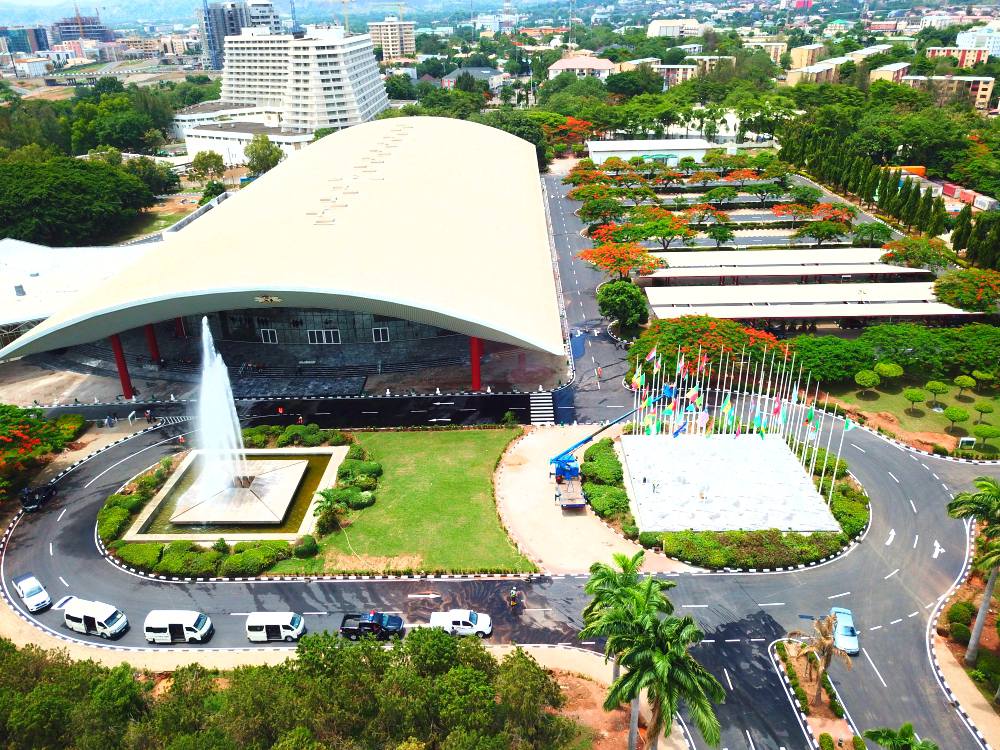The struggle for June 12: Partially, but not totally, over, By Ahmed Aminu-Ramatu Yusuf

The struggle for June 12 is partially, but not totally, over. Till this day, the struggle for the realisation for the full ideals of June 12 continues. But the significance of June 12 lies in the fact that it has strongly initiated the struggle for Nigeria’s “Second Independence” – a struggle for democracy, development and social justice.
The 12 June, 1993 presidential election, till this day, remains the freest, fairest, approvingly transparent, and most credible election in Nigeria’s history. Chief MKO Abiola, without any iota of doubt, won the election.
But why did Abiola win the election? Why was June 12 so popular with the vast majority of Nigerians? Why did Nigerians sacrifice so much for June 12?
Nigerians voted Abiola, not so much because they believed he would seriously tackle Nigeria’s problems. For they rightly felt that his class background, his strong relationship with the military oligarchs, and his connections with Western imperialist forces, would greatly restrained him from doing so.
Nevertheless, Nigerians still voted for Abiola and stood largely by and for June 12, because they considered him as highly “detribalised”, a generous industrialist, and an internationally renowned and connected business tycoon, who was opposed to ethnic, religious, and regional narrow-mindedness. Besides, he was largely seen as fair and friendly to all ethnic groups. Additionally, it was believed that he would bring his knowledge and connections to bear in developing the country.
Most importantly, Nigerians from all the ethnic, religious, class and geographical divides voted Abiola primarily and largely because they were fed up with military misrule. They stood for and by June 12 because they wanted civil rule, which they rightly believed was the first step towards restoring democracy, sustainably developing the country and achieving social justice.
Similarly, Nigerians were doggedly opposed to the desperate attempts by the military oligarchs to impose a culture of fear and silence on society. The infamous Decree Numbers Two and Four were strongly criticised and resisted. The first allowed the government to detain any person suspected of acts prejudicial to state security or harmful to the nation’s economic well-being; while the second empowered government to detain any journalist who published any information/report/story that the military oligarchs considered false, discreditable or detrimental to the government’s authority.
Journalists were imprisoned under Decree Number Two. Dele Giwa was killed by a parcel-bomb – a gruesome murder generally believed to have being plotted at the highest level of the government. Foreign journalists were adducted, declared “persona non-grata”, and instantly deported. Fourty-one newspapers and magazines, if not more, were either closed or proscribed for rightfully doing their jobs, while twenty-five were closed or proscribed in 1993 alone, following the annulment of the June 12 election, and the popular struggle for the termination of military rule.
The Nigeria Labour Congress (NLC), the Academic Staff Unions of Universities (ASUU), and the National Association of Nigerian Students (NANS), were, at various times, proscribed, with the latter contemptuously and disdainfully ignoring the proscriptions, while it kept on with its operation.
Also, Nigerians were opposed to collecting the International Monetary Fund (IMF) and World Bank (WB) loans, and their Structural Adjustment Programme (SAP). They widely argued that SAP would lead, and it did lead, to the deindustrialisation, devaluation, retrenchment, unemployment, general hardship, and underdevelopment of the country, amongst others.
Nigerians of southern origins were unhappy with the crass sectionalism, ethnic bigotry and religious zealotry of the military oligarchs. They were bitter with the mechanical implementation of Federal Character and the quota system, which led to the complete erosion of merit, exclusion of many from state services, and the flooding of the federal services with mostly unqualified, inexperienced and incompetent people connected with the military oligarchs and other retrograde forces in the society.
NLC was proscribed, “restructured,” and handed over to renegade labour leaders with strong allegiance to the military oligarchs. All these for strongly opposing, organising protests and strikes against SAP and its devastating effects, alongside the vocal demands for the human, civil and democratic rights of all to be respected.
ASUU was equally targeted by the military oligarchs for organising prolonged strikes against the: underfunding of education; abuses of academic freedom; the subversion of university autonomy; the humiliation of the campus community; and for improved conditions of living.
Lecturers opposed attempts by the government to rationalise faculties and departments, write syllabuses, witch-hunt critical academics, and abduct, detain and deport non-Nigerian academics illegally.
NANS was particularly opposed to the IMF, WB, SAP, and their disastrous policies on the economy, education, and working people. Students particularly organised nationwide protest-demonstrations against the introduction and increases in all sorts of fees, the withdrawal of students’ feeding subsidies, the general hardship of SAP, the endless transition to civil rule, military despotism, and government subservient and capitulation to Western imperialism, etc.
Nigerians of southern origins were unhappy with the crass sectionalism, ethnic bigotry and religious zealotry of the military oligarchs. They were bitter with the mechanical implementation of Federal Character and the quota system, which led to the complete erosion of merit, exclusion of many from state services, and the flooding of the federal services with mostly unqualified, inexperienced and incompetent people connected with the military oligarchs and other retrograde forces in the society.
Southerners were also greatly unhappy with the fact that anything and everything that overtly benefits their states, like the Lagos Metroline, establishment of private universities, revenue allocation formulas, etc. were discarded. For instance, the 5 per cent revenue derivation funds allocated to the oil-producing areas was reduced to 1.5 per cent, which was not even paid under General Muhammadu Buhari. States and local governments were created in ways that largely favoured the Muslim-dominated areas of the north.
There was also bitterness over appointments, promotions and placements in the Federal Civil Service (FCS), which favoured people largely from the North-West. Similarly, “juicy” positions were largely reserved for people connected with the military oligarchs and feudal aristocrats. Most of the public servants retrenched were largely from the Southern and Middle Belt states.
Like Southerners, Middle Belters were disgruntled with their lot in terms of unfavourable appointments, promotions, and placements in the Federal Service, alongside states and local governments creation, and revenue allocation. Like the south, the military oligarchs paid less attention to the infrastructural development of the area.
They were greatly opposed to the use of state resources to promote Islam, at the expense of Christianity. Middle Belters were vocally opposed to the religious fundamentalism, fanaticism, and militancy of some Muslim religious groups, which led to the injury, maiming and killing of their people, including the burning of churches, and destruction of properties.
The annulment of June 12 and the installation of an Interim National Government (ING) did not pacify Nigerians from different classes, ethnic nationalities and religious affiliations. Neither did the termination of the ING by General Sani Abacha and the fascist methods he adopted to kill June 12 succeed. In fact, Abacha’s fascism greatly intensified and internationalised the struggle for the validation of the June 12 election.
They saw in all these the hidden hands and tacit encouragement of the military oligarchs. Christian religious organisations, especially from the Middle Belt, vocally posited that there was an agenda by the military oligarchs to Islamise the country.
They equally frowned at the massive retirement of military officers from their areas, especially after unsuccessful military coups, in which a few members from the Middle Belt participated. This was in addition to the routine premature retirement of military officers from the region.
The Northern states, where most of the military oligarchs originated from, were equally victims of military misrule. For these states were the centres of poverty, hunger, diseases, illiteracy, out-of-school-children, and human underdevelopment, indicating that most Northerners did not benefit from the misrule of the military oligarchs.
The annulment of June 12 and the installation of an Interim National Government (ING) did not pacify Nigerians from different classes, ethnic nationalities and religious affiliations. Neither did the termination of the ING by General Sani Abacha and the fascist methods he adopted to kill June 12 succeed. In fact, Abacha’s fascism greatly intensified and internationalised the struggle for the validation of the June 12 election.
The mysterious death of Abacha and later Abiola did not dissipate the struggle for June 12. It was the restoration of civil rule on 29 May, 1999 that painfully appeased Nigerians about this.
The struggle for June 12 attained only one of its primary objective – the restoration of civil rule. But democracy, development and social justice are yet to be attained.
Democracy simply means the negation of all monopolies of power, the involvement and enthronement of people in the affairs of the state, and the liberalisation, development and humanisation of the political arena. Development is the improvement in the material conditions of the people, the modernisation of society, and the democratisation and humanisation of the economic arena. Social justice means treating Nigerians as equals, irrespective of divides.
The struggle for June 12 is partially, but not totally, over. Till this day, the struggle for the realisation for the full ideals of June 12 continues. But the significance of June 12 lies in the fact that it has strongly initiated the struggle for Nigeria’s “Second Independence” – a struggle for democracy, development and social justice.
Ahmed Aminu-Ramatu Yusuf worked as deputy director, Cabinet Affairs Office, The Presidency, and retired as General Manager (Administration), Nigerian Meteorological Agency, (NiMet). Email: [email protected]










